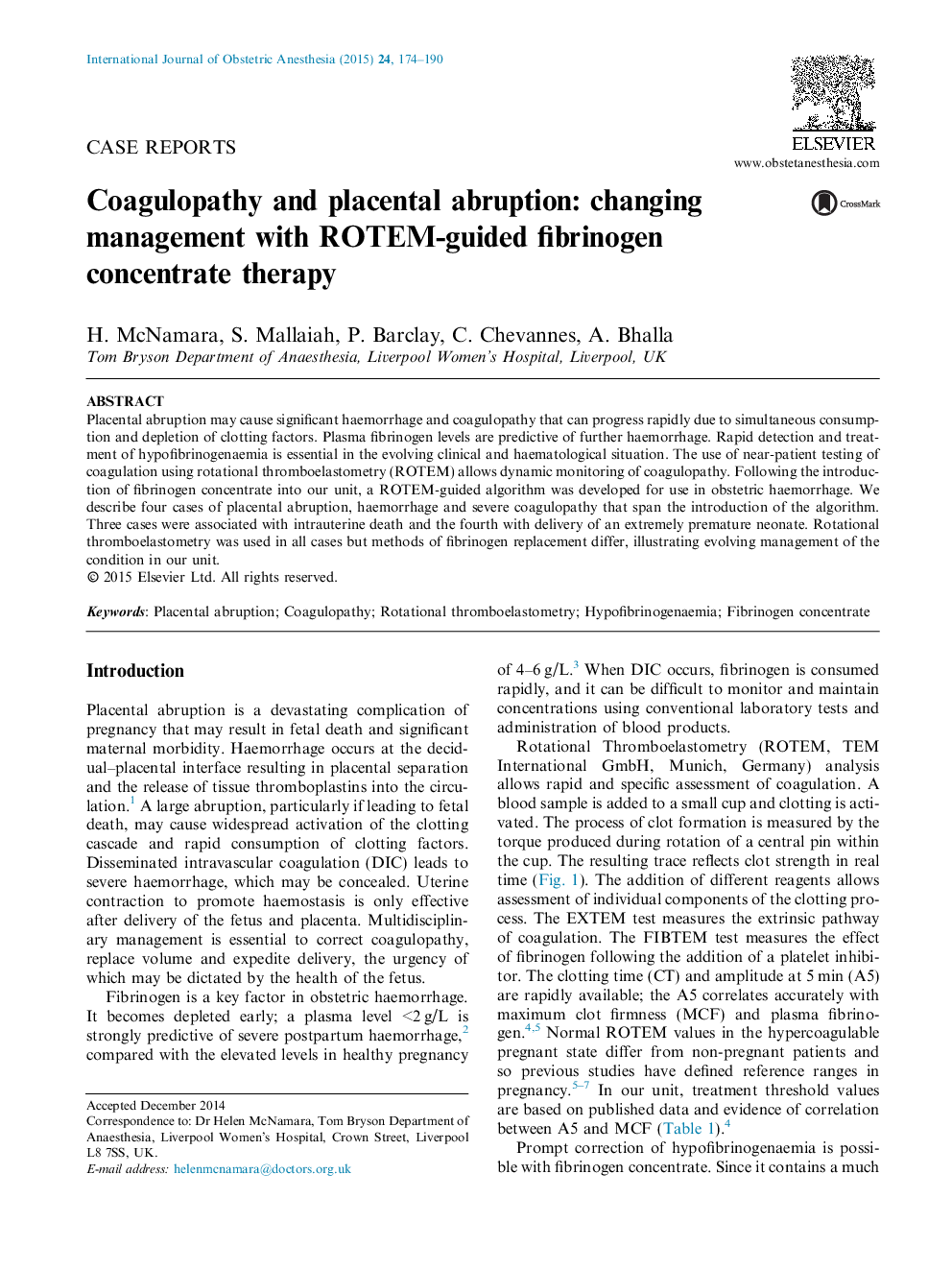| Article ID | Journal | Published Year | Pages | File Type |
|---|---|---|---|---|
| 2757586 | International Journal of Obstetric Anesthesia | 2015 | 6 Pages |
•We report four cases of severe coagulopathy associated with placental abruption.•Chronological case series spans a change in our management of hypofibrinogenaemia.•An algorithm for ROTEM-guided treatment with fibrinogen concentrate was introduced.•Rapid and titratable replenishment of fibrinogen is demonstrated.
Placental abruption may cause significant haemorrhage and coagulopathy that can progress rapidly due to simultaneous consumption and depletion of clotting factors. Plasma fibrinogen levels are predictive of further haemorrhage. Rapid detection and treatment of hypofibrinogenaemia is essential in the evolving clinical and haematological situation. The use of near-patient testing of coagulation using rotational thromboelastometry (ROTEM) allows dynamic monitoring of coagulopathy. Following the introduction of fibrinogen concentrate into our unit, a ROTEM-guided algorithm was developed for use in obstetric haemorrhage. We describe four cases of placental abruption, haemorrhage and severe coagulopathy that span the introduction of the algorithm. Three cases were associated with intrauterine death and the fourth with delivery of an extremely premature neonate. Rotational thromboelastometry was used in all cases but methods of fibrinogen replacement differ, illustrating evolving management of the condition in our unit.
